Medical College of Wisconsin Interventional Radiology Residency
Program Director Welcome | Parag J. Patel, MD, MS, FSIR
The division of Vascular & Interventional Radiology consists of twelve diverse, experienced clinical faculty who practice at Froedtert Hospital as well as at the Clement J. Zablocki VA Medical Center. Our faculty’s entire clinical and research focus is on Interventional Radiology. Our residents will have the opportunity to train with physicians that have a wide range of special interests, such as interventional oncology, palliative medicine, vascular disease (peripheral interventions and Aortic), musculoskeletal interventions, and MR-guided ablation. The division's faculty are world-renowned in their areas of expertise and are frequently invited to speak at national and international meetings. We have demonstrated national leadership within our field including founding the Society of Interventional Oncology (SIO), chairing the SIR Scientific Annual Meeting, holding positions as SIR committee chairs, past and present councilors on the SIR Executive Council, and president of APDIR, among others.
Additionally, our program has state-of-the-art facilities housed within a new surgical and interventional platform designed with our patients in mind. The new interventional platform has the latest Siemens equipment including five single plane flat panel angiography suites, three bi-plane angiography suites, two hybrid OR Zeegos, and an integrated CT-angiography suite. Our education mission is not limited to our residents as we also support an IR technologist training program, one of only a handful in the country.
The training environment includes all aspects of Interventional Radiology as well as those pertinent to running a clinical practice. This includes dedicated education on E&M and CPT coding, documentation, and perspectives from hospital administration.
We thank you for your interest in our residency program, and wish you the very best as you progress through training. Please feel free to contact us with any questions.

Program Overview
Comprehensive Training
The Interventional Radiology residency experience is diverse and extensive with each resident encountering over 1500 patients per year. Our clinical practice covers the full spectrum of interventional radiology, performing all diagnostic and endovascular procedures (outside of cardiac catheterizations and intracranial neuro interventions), all nonvascular percutaneous liver and percutaneous GU procedures, image-guided interventional oncology therapies, and non-invasive outpatient vein therapy procedures. Our division is fully integrated with subspecialities of the Department of Radiology such as digital imaging, chest, and GI radiology. Our residency programs provide well-rounded training for complete clinical competence and prepare our residents for IR/DR certification.
Junior Residents (PGY-2-PGY-4) in our Integrated program focus primarily on Diagnostic Radiology, rotating through thirteen four-week blocks per year that cover chest, MSK, nuclear medicine, neuro-radiology, GI/GU, IR, ultrasound, body CT, body MR, breast, pediatrics, VA digital imaging/VA general imaging, emergency medicine, and American Institute for Radiologic Pathology (AIRP) cardiac. Senior Residents (PGY-5-PGY-6) are devoted to Interventional Radiology, with procedural, ICU, palliative care, and clinical care (in-patient care, consult service, and outpatient clinic) rotations.
World-Class Facilities
Our program has state-of-the-art facilities housed within a new surgical and interventional platform designed with our patients in mind. The new interventional platform has the latest Siemens equipment, including five single-plane flat-panel angiography suites, three bi-plane angiography suites, two hybrid OR Zeegos, and an integrated CT-angiography suite.
Unmatched Clinical Experience
Our residents will train with full-time, fellowship trained, CAQ Board Certified faculty whose entire clinical and research focus is Interventional Radiology. With a wide-range of special interests – such as interventional oncology, palliative medicine, peripheral vascular & aortic disease, and musculoskeletal interventions – our faculty are world-renowned in their areas of expertise. They are frequently invited speakers at national and international meetings and show demonstrated leadership within the field.
Surgical Partnerships
We believe that our practice has many unique qualities including a relationship with the Division of Vascular Surgery, which allows for the collegial combined medical and procedural care of patients with peripheral vascular disease. We have a hybrid operating room that allows combined cases in an operating room setting, while maintaining high-quality imaging. In our education partnership with General Surgery, incoming residents who match into our categorical Integrated Interventional Radiology program will also match into a preliminary year with MCW General Surgery, where their training is specifically geared to a future in interventional radiology.
Cutting-Edge Research
The Division of Vascular & Interventional Radiology is actively engaged in a portfolio of high-impact studies and contribute to numerous device trials, supported by a dedicated clinical research team. Residents are routinely involved both in clinical trials and their own research projects, and often present at national meetings, showcasing original research on topics ranging from vascular disease and interventional oncology to musculoskeletal and gastrointestinal disorders and demonstrating a commitment to advancing the science and practice of interventional radiology.
Education Focused
Our mission is not limited to our residents, as we also support an IR technologist training program—one of only a handful in the country. The training environment includes all pertinent aspects of running a clinical Interventional Radiology practice, like dedicated education on E&M and CPT coding, documentation, and perspectives from hospital administration.
Additional Residency Information
Reasons to live in Milwaukee
Current Residents
Class of 2026
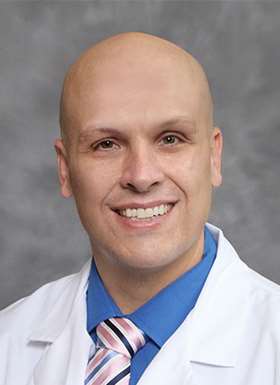
Mark Wright, DO
Integrated IR Resident
Hometown: Ogden, UT; Undergraduate: Weber State University; Medical School: New Mexico State University; DR Residency: University of Nebraska Medical Center
Class of 2027
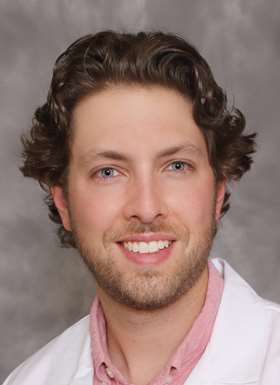
Patrick Moran, MD
Integrated IR Resident
Hometown: Forest Lake, MN; Undergraduate: University of Wisconsin-Madison; Medical School: University of Minnesota Medical School-Duluth
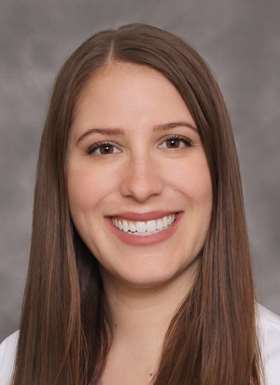
Anastasia Schroeder, MD
Integrated IR Resident
Hometown: Winsted, MN; Undergraduate: St. Cloud State University, St. Cloud, MN; Medical School: University of North Dakota School of Medicine and Health Sciences
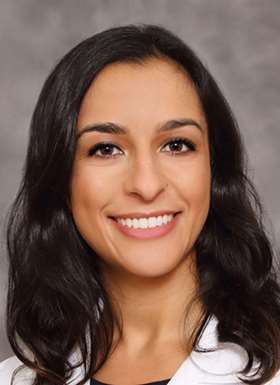
Sayeh Watts, MD, MEd
Integrated IR Resident
Hometown: Los Altos, CA; Undergraduate: Bucknell University; Medical School: Pennsylvania State University College of Medicine
Class of 2028
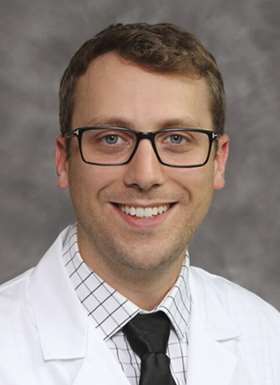
Matthew Henry, MD, MS
Integrated IR Resident
Hometown: Okemos, MI; Undergraduate: University of Michigan-Ann Arbor; Medical School: Wayne State University
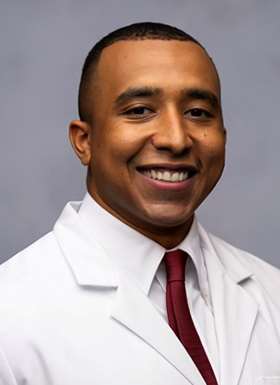
Michael Rabaza, MD, MS-CTS
Integrated IR Resident
Hometown: Chicago, IL; Undergraduate: University of Illinois-Chicago; Medical School: University of Illinois-Chicago
Class of 2029
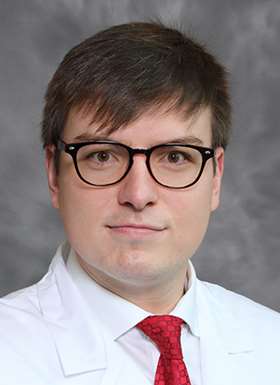
Alexander Borovik, MD
Integrated IR Resident
Hometown: Almetyevsk, Russia; Undergraduate: University of Central Florida; Medical School: Case Western Reserve
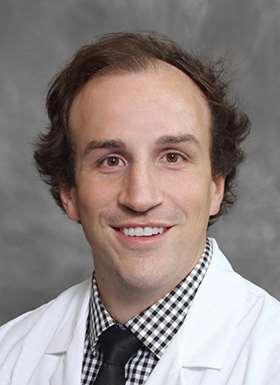
Ty Mattinson, MD
Integrated IR Resident
Hometown: Spokane, WA; Undergraduate: University of Utah; Medical School: University of Washington
Class of 2030
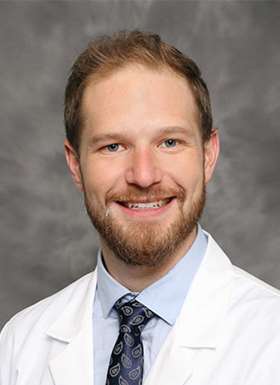
Travis Lundeen, DO
Integrated IR Resident
Hometown: Rice Lake, WI; Medical College: A.T. Still University School of Osteopathic Medicine in Arizona
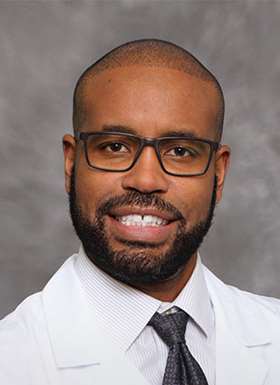
Andres R. Aquino, MD
Integrated IR Resident
Hometown: San Pedro de Macoris, DR; Medical School: Howard University College of Medicine
Frequently Asked Questions
Contact Us
(414) 805-3414 | (414) 476-7503 (fax)
Division of Vascular & Interventional Radiology, Room 2803
Medical College of Wisconsin Affiliated Hospitals
c/o Froedtert Hospital
9200 W. Wisconsin Ave.
Milwaukee, WI 53226

